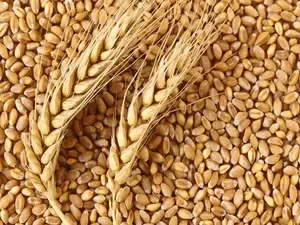How Do MSP Hikes for Rabi Crops Reflect PM Modi's Commitment to Farmers?

Synopsis
Key Takeaways
- MSP increases benefit farmers directly.
- Encourages crop diversification.
- Reflects the government's commitment to agriculture.
- Ensures fair remuneration for farmers.
- Supports economic stability in the agricultural sector.
New Delhi, Oct 2 (NationPress) Farmers throughout Haryana expressed their enthusiasm on Thursday regarding the government's decision to enhance the minimum support prices (MSP) for rabi crops. They referred to it as a “Diwali bumper gift” from Prime Minister Narendra Modi, who they believe has consistently prioritized the interests of the agricultural community.
The Cabinet Committee on Economic Affairs (CCEA), led by Prime Minister Modi, approved the increase in MSP for all designated rabi crops for the 2026-27 marketing season on Wednesday.
This adjustment aims to guarantee that farmers receive fair prices for their crops and promotes crop diversification.
In conversations with IANS, farmers from Hisar district in Haryana expressed their satisfaction with the announcement. Subhash, a farmer from Gangwa village who manages 10 acres, stated that this decision will greatly enhance farmers’ income.
“This is genuinely a Diwali bumper gift. Prime Minister Narendra Modi is always focused on the welfare of farmers, and this increase will help us elevate our living standards. I am thankful to PM Modi and Haryana Chief Minister Nayab Singh Saini for this initiative,” he mentioned to IANS.
Another farmer, Shyam Sundar Sharma, who operates on 11 acres, mentioned that the Rs 100 rise in wheat MSP alone will provide significant economic relief.
“We fully support this decision. The BJP government is working for farmers’ welfare in ways that previous administrations did not,” he remarked.
Balwan Singh, also from Gangwa, emphasized that PM Modi’s administration has ensured annual MSP increases.
“This ongoing support greatly benefits farmers and inspires us to cultivate more,” he added.
Official estimates indicate that the new MSP will offer farmers a margin of 109 percent over the average production cost for wheat, 93 percent for rapeseed and mustard, 89 percent for lentils, 59 percent for gram, 58 percent for barley, and 50 percent for safflower.
The most substantial increase has been set for safflower at Rs 600 per quintal, followed by lentils (Masur) at Rs 300 per quintal.
The increases for rapeseed and mustard, gram, barley, and wheat are Rs 250, Rs 225, Rs 170, and Rs 160 per quintal, respectively.
This decision aligns with the Union Budget 2018-19's commitment to fixing the MSP at a minimum of 1.5 times the all-India weighted average cost of production.









